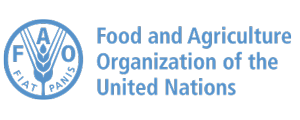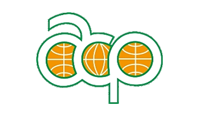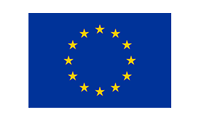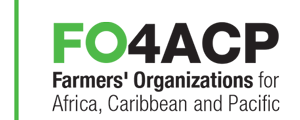Short supply chains in Family Farming: A tool for the inclusion of Family Farming in markets
Modalidad: Self-study course | Desde el 17-11-21 hasta el 31-12-24
The Course “Short supply chains in Family Farming” is part of the Regional Technical Platform for Family Farming (https://www.fao.org/americas/daf/plataforma/es/) in alliance with the Projects "Sembrando Oportunidades" (ABC, MAPA Brazil, MADR Colombia and FAO ) and the Farmers Organizations for African, Caribbean and Pacific countries - FO4ACP (FIDA, EU, OACPS, PROCASUR and FAO). This platform promotes institutional and technical innovations that strengthen family farmers and small producers around the world by mobilizing existing knowledge, experience, best practices, fostering dialogue, learning and collaboration among a diversity of partners from inside and outside of FAO.
Marketing continues to be one of the main challenges for family farming, which is why schemes are required that promote quality, the reduction of the carbon footprint, a fairer distribution of value in the chain, reduction of intermediation and reduction of food loss and waste.
Short supply chains are schemes in which farmers sell directly to consumers, or with minimal intermediation, and are based on a growing demand from buyers who are looking for local, fresh, authentic, healthy and seasonal products. Short chains such as through farmers’ markets, regional fairs, food basket schemes and own stores, among others, represent a market opportunity for family farming.
The course addresses the strengthening of social capital and trust through associative and solidarity processes, as well as the production of sustainable food through agroecological practices, which are identified as key elements for the promotion of these chains and to take advantage of opportunities in markets that value social and environmental attributes.
Some experiences of short chains in Brazil, Colombia and other countries in the region are presented, showing the progress made to date, as well as the opportunities and challenges to promote these schemes in which family farming plays an important role.
* Remember to write your name correctly since it is the same that will appear in the certificate and you will not be able to modify it later.
 |
 |
 |
 |
 |
 |
Course overview
- Name:
-
Short supply chains in Family Farming: A tool for the inclusion of Family Farming in markets
- Type of course:
-
Self-study course.
- Total duration:
-
20 chronological hours
- Modality and methodology of the virtual course:
-
Since this is a self-study course, the participant is responsible for his or her own learning. It is structured into four units that are to be completed sequentially, meaning that once one unit has been completed, it is possible to access the next.
Through the course, the participant will have the opportunity to study concepts, learn about and strengthen procedures and apply criteria. The themes of the course are linked to learning about concepts and experiences related to short supply chains, in order to understand them as necessary and important schemes for strengthening family farming and its linkages with markets.
The methodology considers the systematic use of different learning tools and self-assessment exercises in each unit, which will facilitate the understanding of the contents. Studying the contents of this course requires a dedication of roughly 20 chronological hours, which may vary depending on the references used, and it is recommended to plan on one-hour sessions three times a week.
- Course start and end dates:
-
From 17 November 2021.
- Intended audience:
-
- Public managers and professionals who work in the implementation of programmes and actions linked to rural development mechanisms and programmes.
- Representatives of Family Farming organizations.
- Professionals who participate in different initiatives within the framework of South-South cooperation.
- Leaders of civil society, representatives of the private sector and academia, and students who have an interest in the course's agenda.
- Technicians and coordinators participating in projects managed by FAO in the region.
- Application / registration:
-
You can register by clicking on the button in the column to the right of this page.
Before registering, please read the complete course description to identify the objectives of the course and the profile of the intended audience. Register here.
- General aim:
-
"Present concepts and experiences related to short supply chains that allow them to be recognized as necessary and important schemes to strengthen family farming and its linkages with markets."
- Specific objectives:
-
- Generate basic skills to interpret the concept of short supply chains, including their different types and modalities.
- Identify how short supply chains represent an alternative for intervention in territorial food systems, helping to promote efficiency, the inclusion of family farming, environmental sustainability, fair trade and territorial development.
- Recognize associativity as a strategy in family farming to promote access to different markets and generate commercial, technical, administrative and financial capacities.
- Course contents:
-
- Concepts related to short supply chains.
- Short supply chains: an alternative to promote food systems that are more efficient, inclusive, sustainable and fair.
- Public food procurement: a public space to boost local family farming.
- Family farming associations: a way to increase the competitiveness of family farmers in marketing their products.
- Course grading system:
-
To pass the course, a final evaluation must be completed at the end of the learning process. The minimum passing grade is 70% and an indefinite number of attempts is permitted.
The evaluation will be graded according to the following scale:
- Distinction: 90 to 100 points
- Merit: 80 to 89 points
- Pass: 70 to 79 points
- Fail: 0 to 69 points
- Hardware requirements:
-
For the correct completion of the course, the participant must have the following minimum technical specifications:
- PC with Internet connection.
- The quality and speed of browsing and downloading documents will depend exclusively on the connection bandwidth.
- RAM memory greater than 1GB.
- Free hard disk space greater than 500 MB.
- 600 MHz processor or higher.
- Software requirements:
-
- Latest version of Google Chrome, Mozilla Firefox, Safari u Opera, with JavaScript enabled.
- Screen resolution of at least 1024x768 pixels (width by height).
- PDF document reader.
- Additional requirements:
-
- Microsoft Office skills (Word, PowerPoint, Excel), e-mail management and Internet browsing.
- Availability of at least 8 to 10 hours per week for reading and carrying out course activities. Participants may choose their own course schedule and enter the classroom at any time, but should consider entering at least three times a week to complete the required readings and activities.
- Language:
-
The course will be taught entirely in Spanish.
- Course code:
-
AGEN202111
- Certification:
-
Once the course is passed, participants will be able to automatically download the certificate granted by the FAO RLC on the platform where the course is hosted.
Please remember to save your certificate, as it will not be available to be downloaded again once the training course has closed.
- Better to which it belongs:
-
BP4: Small scale producers equitable access to resources
- Related FAO Regional Initiative:
-
RI2: Family farming and inclusive food systems for sustainable rural development
- Integrated clusters:
-
8 (Family Farming)
- Supervising officer:
-
Luiz Beduschi
- Contact:
-
If you have any additional questions, please contact [email protected]

